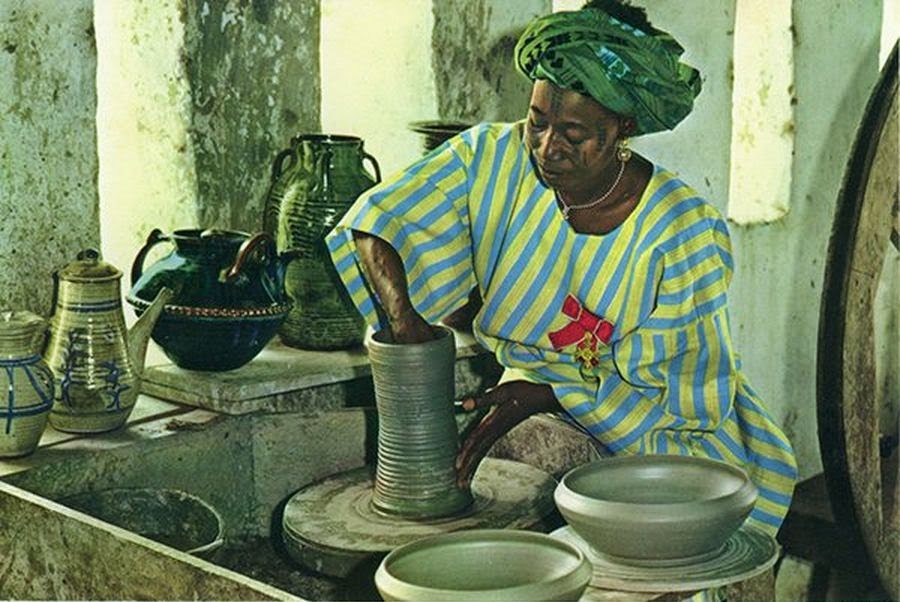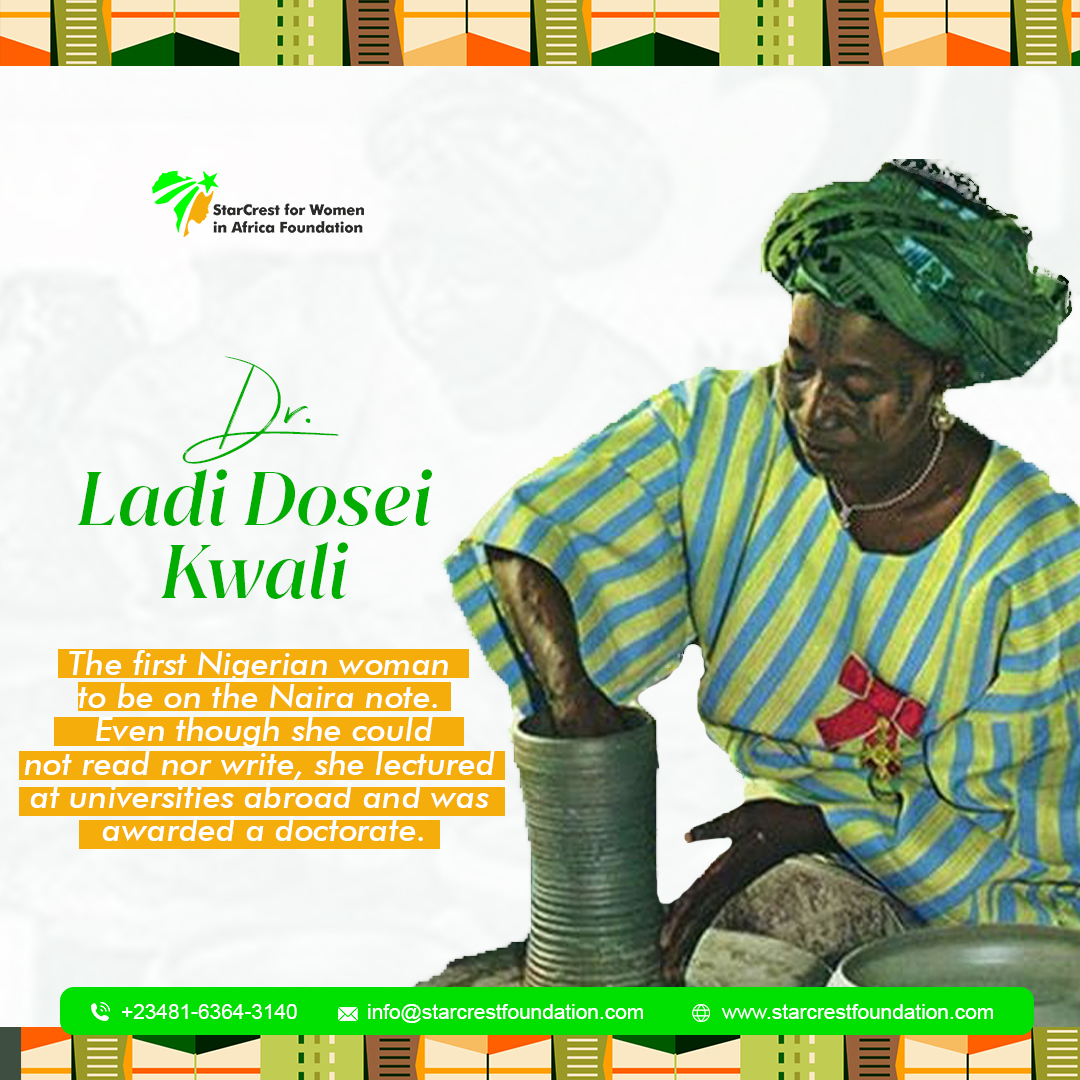Ladi Kwali: A Legacy of Craft, Resilience, and Leadership
As we celebrate Women Crush Wednesday (WCW) at StarCrest Foundation, it is fitting to honor the extraordinary life and legacy of Ladi Kwali, a trailblazing figure in Nigerian history. Her journey, which culminated in becoming the first woman to be featured on a Naira note, offers invaluable lessons on resilience, creativity, and leadership, particularly for young girls navigating the challenges of the modern world.
A Humble Beginning in Pottery
Born in the small village of Kwali in present-day Abuja around 1925, Ladi Kwali grew up in a family with a rich tradition of pottery. Her early exposure to this craft shaped her destiny. From a young age, she displayed a natural talent for molding clay into beautifully designed pots, bowls, and vessels, which were used in everyday village life. Kwali’s creations, however, were more than just functional objects—they were works of art. Her intricate designs and impeccable craftsmanship soon gained recognition beyond her village.

Her travels began when her reputation as a potter reached the attention of British artist Michael Cardew, the then-head of the Pottery Training Centre in Abuja. In the 1950s, Kwali joined his studio, where she was exposed to modern techniques in pottery, blending traditional Nigerian craftsmanship with contemporary European styles. Her works stood out, and soon, exhibitions of her pottery were held in Europe and the United States, marking the start of her international fame.
Navigating Challenges: Breaking Barriers
Ladi Kwali’s journey to the top was not without its challenges. As a woman in a male-dominated art form and society, she had to overcome societal expectations that often limited women to domestic roles. Pottery, although traditionally associated with women in some Nigerian communities, was not considered a profession that could elevate one to national or international prominence. Kwali shattered this stereotype by proving that craftsmanship, when honed and combined with dedication, can open global doors.
Her travels exposed her to new ideas and techniques, but they also brought her face-to-face with the cultural and gender challenges of her time. In many ways, Kwali was navigating two worlds—preserving the traditional pottery methods of her people while adopting new forms introduced by Cardew and other international artists. This delicate balance is a testament to her resilience and adaptability, qualities that young girls today can draw inspiration from.
Becoming a National Icon
Ladi Kwali’s impact on Nigeria extended far beyond the pottery wheel. She became a symbol of the potential and power of Nigerian women, breaking into international art circles while staying rooted in her heritage. In recognition of her contributions to Nigerian arts and culture, she was awarded several national honors, including the Member of the Order of the British Empire (MBE) in 1962 and the Nigerian National Order of Merit Award (NNOM) in 1980.
Her most significant honor came posthumously when she became the first woman to be featured on a Naira note, appearing on the back of the 20 Naira note. This recognition immortalized her contribution to Nigerian arts and paved the way for future generations of women to see themselves in national symbols of pride and success.
Leadership by Example
Ladi Kwali was not just an artist; she was a leader. Her mentorship of younger potters, particularly women, helped preserve the traditional pottery styles of Nigeria. She led by example, showing that with dedication, innovation, and resilience, women could succeed in any field they chose to pursue.
Today, Kwali’s legacy lives on, inspiring young women to break barriers and challenge the limitations placed on them by society. Her life serves as a powerful reminder that no dream is too big, no craft too small, and no challenge insurmountable.
A Beacon of Hope for Girls

As we approach the International Day of the Girl Child, Ladi Kwali’s story becomes even more relevant. Her ability to navigate cultural and gender challenges to become a respected and celebrated figure is a source of inspiration for girls everywhere. In a world where young girls are still fighting for equal opportunities in education, leadership, and creative expression, Kwali’s legacy shines as a beacon of what is possible when women are given the tools and support they need to succeed.
Ladi Kwali’s story is a call to action for the next generation of female leaders. Whether in arts, business, technology, or governance, the lessons from Kwali’s life—resilience, creativity, and leadership—are vital for young girls to embrace as they work toward shaping a future where women are equally celebrated and empowered.
In Conclusion
Ladi Kwali’s life and work transcend time and culture. Her journey from a small village potter to an internationally renowned artist and the first woman to be featured on Nigerian currency is a testament to her strength and vision. As we celebrate her legacy, we at StarCrest Foundation hope her story will inspire young girls to pursue their dreams fearlessly, navigating challenges with the same grace and resilience that Ladi Kwali exemplified throughout her life.
Let her life remind us that women, when given the opportunity, can transform the world.



